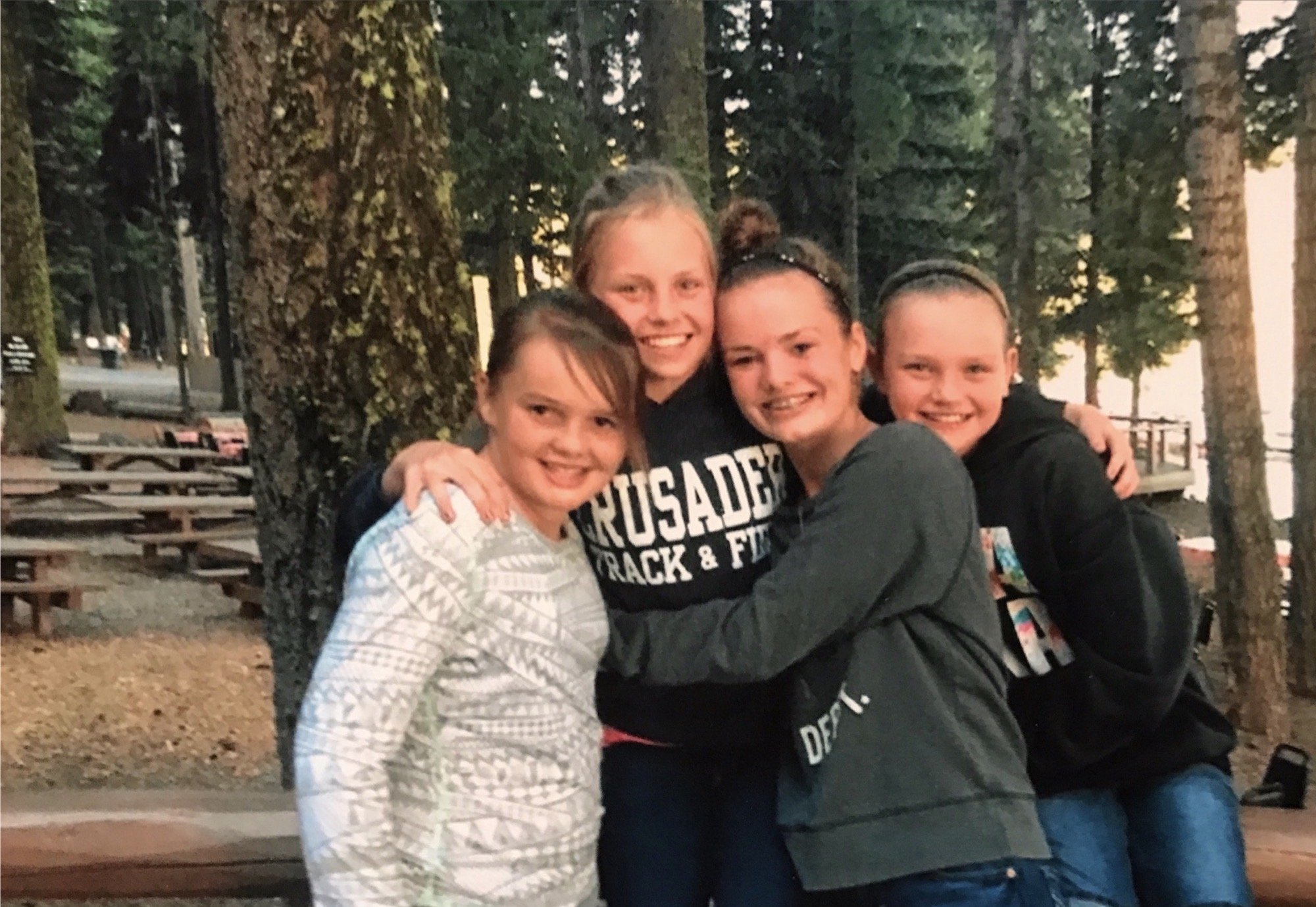Please, Always Remember Grace.
Grace’s Story
Grace was so much more than a girl who took her life. Grace truly had more joy and happiness in her 15 years than many have in a lifetime. She was an incredible daughter, granddaughter, sister and friend. She cared about all people and animals. She was kind beyond measure and had true empathy for others and wanted everyone to be happy. She always had a smile and kind words for people she came across. She was an angel on earth. She was happiest in nature, with her animals or creating something.
Grace did not have the typical “red flags” people think of when they think of a person that may be dealing with depression. Even her friends were unaware that Grace was struggling with depression. That’s because Grace’s depression was not typical. Grace shared with me feeling sad and not understanding why, 5 months prior to her passing. It was a sporadic feeling of sadness that she didn’t understand. In her words “her life was wonderful and she couldn’t understand why she felt the way she did”. Grace never talked about thoughts of suicide despite counseling. Even her counselor had no idea she could take her life. Maybe Grace had no idea.
Although we took Grace’s depression seriously, the lessons I have learned are…
Suicidality does not always follow a predictable pattern and can be impulsive.
Be kind to others because you never know what they are going through (Grace said this many times in her life).
People don’t need to have the “typical” signs of suicide.
If you have any idea that someone may be going through depression or a dark time in their life you must reach out and tell a trusted adult.
FINDING MYSELF AFTER LOSING GRACE
There are so many parts of that day I don’t remember. What I remember most was seeing Grace’s face and death– I knew immediately she was gone. I remember Jill Rosie making a primal, guttural scream that I had never heard from anyone in my life. I remember I kept telling her, “Don’t look! Don’t look! Call 911.” I was yelling out instructions to her trying to distract her from the horror.
I also remember performing CPR on my deceased daughter for what seemed like hours until the first responders came. I remember my friend Melissa coming over to pick up Jill Rosie to take her away from the scene. I remember being so inconsolable and desolate that another friend, Leslie, admitted me to the hospital to help calm me down.
I remember involuntarily crying every day for a year straight – overwhelmed by the grief, anger and sadness that my beautiful daughter was gone. I remember Grace’s death making my relationship with my other daughter Jill Rosie so fragile we barely spoke for a year. And, I remember it fracturing my marriage so significantly that my husband and I divorced two years later.
After nine months, I started to regain my life when I returned to school to teach and plan Run with Grace 5K. My students were my saviors and resurrected my soul. This is when I started to find my joy again – through their passions and my purpose of making a difference in their lives.
My friend Lisa helped me start Run with Grace, which provided me a way to celebrate Grace’s life and raise awareness about the importance of suicide prevention. During the annual run, we honor her memory as a truly wonderful and special girl, not just someone who took her life. I want people to remember Grace as more than a mental illness or suicide statistic. My ultimate goal with Grace is not to remember the end but only the wonderful times, her kind and generous spirit, and her beauty.
Losing a child to suicide creates a pain so indescribable and terrifying that you can’t fathom how you’ll ever survive it. I was so consumed by the grief and agony, I often felt like my heart would stop beating and I couldn’t go on. It really is a pain incomprehensible to others who have not experienced it.
I don’t want another family to understand what that pain feels like – but I know the reality is there will be others. I share takeaways from my tragedy in hopes it might spare other families from having to bury their child far too early.
You can’t be too serious or concerned about depression or suicidal talk. If a youth is extremely sad or has mentioned dying, get professional help immediately.
Encourage kids to journal and/or write stuff down. As teens’ brains develop, many have a difficult time accessing, understanding and communicating emotions, so they often have difficulty expressing feelings orally and can do so better in writing.
Teens should ALWAYS tell an adult if they’re worried about a friend, even if the friend pleads not to tell anyone. Impress upon kids that it’s better that their friend is angry with them for a while rather than them not be alive. If the initial adult told doesn’t take action, tell another adult.
Look for subtle changes. The signs aren’t always glaring and obvious. Are they more sensitive than usual? Are they isolating more? What small habits or routines have changed? Looking back on the morning Grace took her life, her anger towards me for taking her phone was remarkably out of character for her. And, the fact that she didn’t go running with me was extremely unusual – running was something she’d never skip. Her friends also mentioned that she had been eating alone a lot at lunch and would read, instead of sitting with her regular group. Pay attention to those small signs.
Grace’s suicide and death have forever changed my outlook on life and how I treat others. Grace’s most prominent gifts were that she was an incredibly kind, caring and loving person. But she wasn’t able to understand or process the hate and cruelty in our world. After losing Grace, I have made a concerted effort to carry and emulate her gifts and values through my own actions and how I treat others. I also try not judge people by their external demeanor – physical appearances can be deceiving. One of the comments I heard most after Grace passed was that she always had a smile on her face. It just goes to show people often don’t outwardly display their pain and sadness. And for youth, it can be even more difficult and overwhelming.
For help or more information on suicide, contact the National Suicide Prevention Lifeline at 988 or visit www.suicidepreventionlifeline.org.





